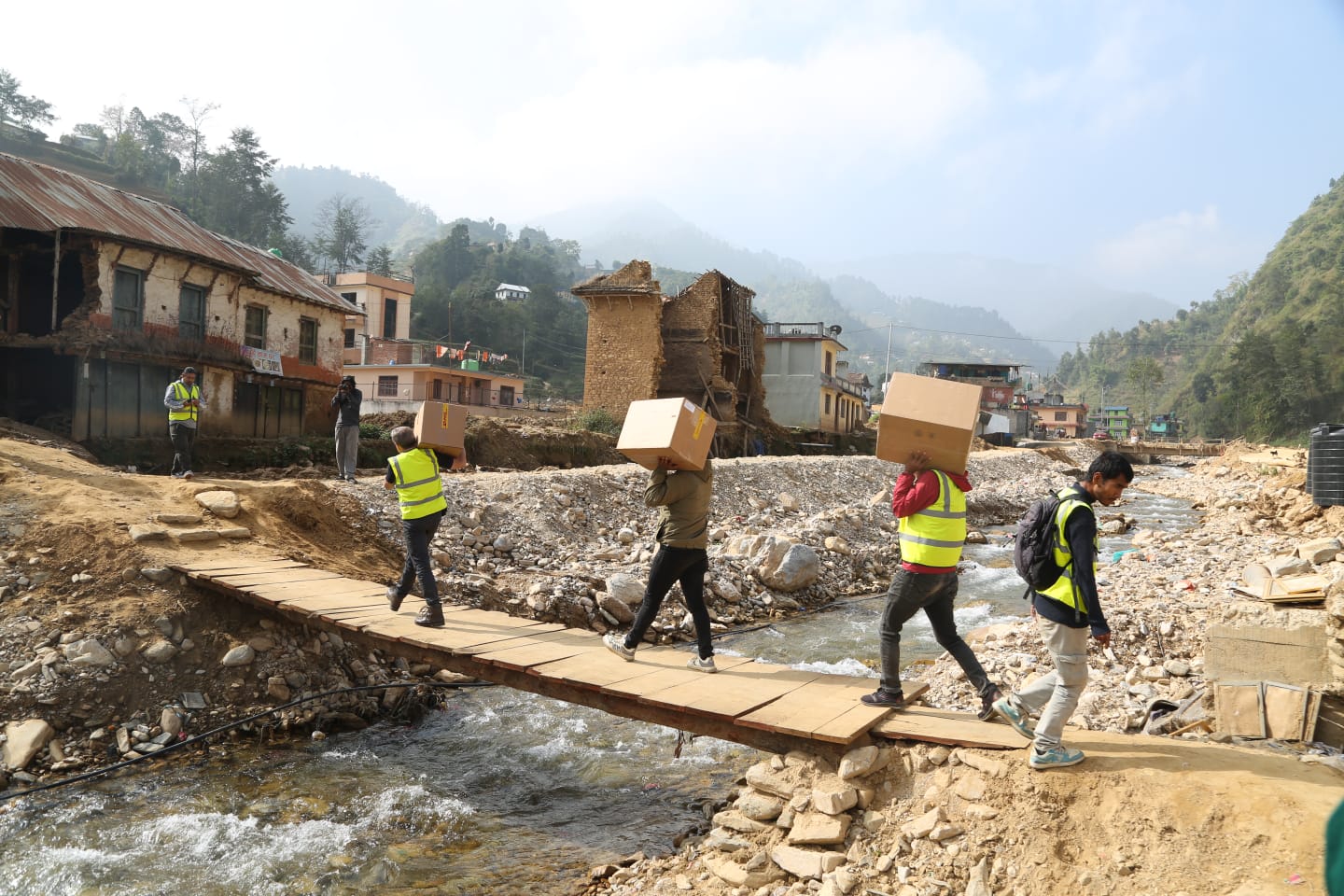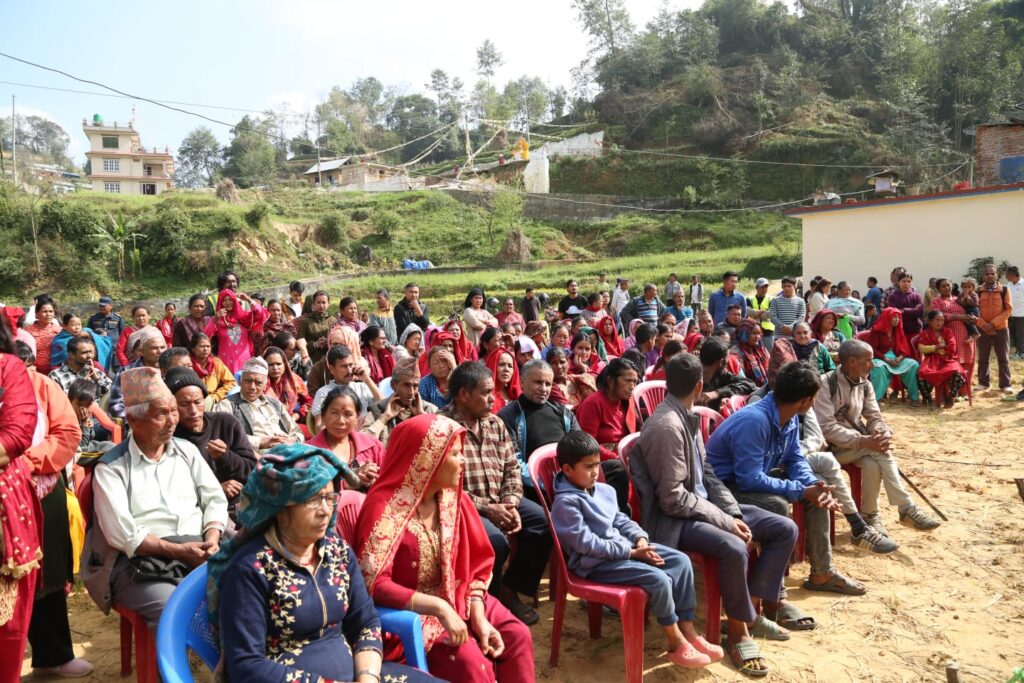
By Sadikshya Subedi
In the wake of the devastating floods that struck Roshi village in Kavrepalanchowk, the full impact of unchecked development, climate change, and insufficient disaster preparedness has become starkly visible. The disaster displaced hundreds, caused irreparable losses, and laid bare the vulnerabilities that the community has long grappled with.
A Legacy of Commitment in Panauti

Community Innovation Organization (CIO) has a long history of working in this region, especially in Panauti. Over the years, we’ve implemented various initiatives aimed at building community resilience. From conducting climate impact surveys in Simpani to introducing sports programs for girls at Bal Prakash School, our efforts have consistently sought to bridge critical gaps in education, health, and climate awareness.
Despite our previous work, the scale of the recent disaster in Roshi village demanded immediate action. Seeing the dire need for clean drinking water and basic sanitation facilities post-flood, we sprang into action once again.
Clean Water as the Cornerstone of Recovery

On November 16, 2024, CIO launched a major disaster relief initiative in Roshi village. With the support of Wine to Water, Sejal and Sisters Foundation, Hope worldwide Nepal, and other partners, we distributed 300 WHO-approved, lab-tested membrane water filters. Unlike conventional filters, these are specially designed for longevity, capable of providing clean water for more than 10 years with proper use and maintenance.

Training sessions were organized alongside the distribution to ensure that the community could effectively use and maintain the filters. Each filter was a testament to the collective effort of several organizations and individuals committed to aiding Roshi in its time of need.

Voices of Hope and Determination
The community’s response to the relief program has been overwhelmingly positive. Local representative Nirmal Khatri shared: “The relief program was transparent, and we are grateful for the pure water and hope it has brought us. It’s reassuring to see organizations like CIO genuinely working for our well-being.”
Nabaraj Khanal, a president of CIO said that we are collaborating with like-minded organizations which made this possible. Every helping hand contributed to ensuring that clean water reaches those who need it most.”
Similarly, Rajan Bhandari, a board member of CIO, highlighted: “We are proud to provide even a small measure of relief during this challenging time. We are already exploring further ways to support the community in both immediate and long-term capacities.”
The Ongoing Crisis at Indrawoti School

While delivering aid, we were deeply saddened when we visited Indrawoti School and seeing the condition of Indrawoti School, which has been severely impacted by the disaster. The damage to its infrastructure and the lack of basic resources make it clear that immediate intervention is required. We are actively seeking partnerships with NGOs, INGOs, and private companies to help restore the school and provide a conducive learning environment for its students. This initiative, we hope, will mirror the success of our past collaborations and bring a meaningful change to the school and its surrounding community.
Mining, Climate, and Long-Term Challenges
Beyond the immediate impacts of the floods, Roshi faces systemic challenges. Unregulated mining and deforestation have exacerbated the region’s vulnerability to natural disasters. Climate change has already begun to affect agricultural productivity, air quality, and water availability in nearby Simpani and other parts of Kavre.
Our recent surveys show a worrying trend: local livelihoods are at risk, and without proactive measures, the situation could worsen. Strengthening Environmental Impact Assessments (EIAs) and enforcing stricter environmental regulations are crucial steps toward safeguarding these communities.
Building a Resilient Future
Globally, disaster-prone nations are focusing on resilient infrastructure and sustainable development to mitigate the impact of climate-related events. Nepal must accelerate its efforts in this regard. Robust disaster preparedness frameworks and community-driven resilience initiatives are critical for long-term sustainability.
As Buddha Bir Tamang, a local activist, aptly stated: “Clean water is the first step toward recovery. These filters represent more than just health; they symbolize hope and resilience for our future.”

CIO remains steadfast in its mission to support Roshi and other vulnerable communities, advocating for sustainable practices and fostering resilience. Together, with the support of local and international stakeholders, we can transform disaster-stricken areas into beacons of hope and strength.


Happy

Sad

Surprised

Excited

Angry